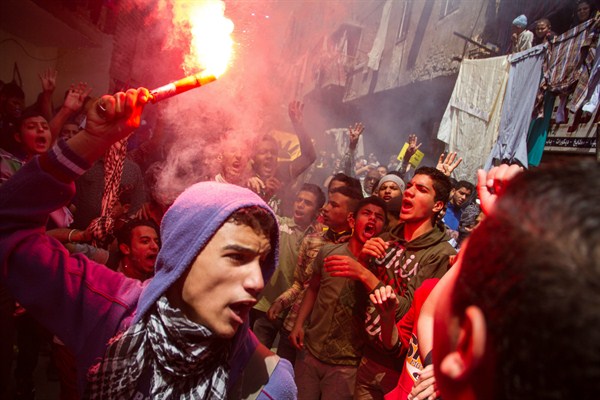Editor’s Note: WPR has agreed to publish this article anonymously due to the hostile environment in Egypt toward political dissent and independent reporting.
Tracking down the Society of the Muslim Brothers, better known as the Muslim Brotherhood, is a difficult task. Ever since the group was outlawed in Egypt following the July 2013 military coup that brought Field Marshal Abdel Fattah el-Sisi to power, those Brotherhood members who have not been killed, executed or imprisoned have kept their heads down.
Inside Egypt, they generally refuse to meet or cancel at the last minute for fear of being identified and apprehended by the security services. Such is the extent of the government’s crackdown that, even abroad, they can be hard to find. Only those who have safely established themselves in exile, in cities like Istanbul and London, can be reached with any consistency.

